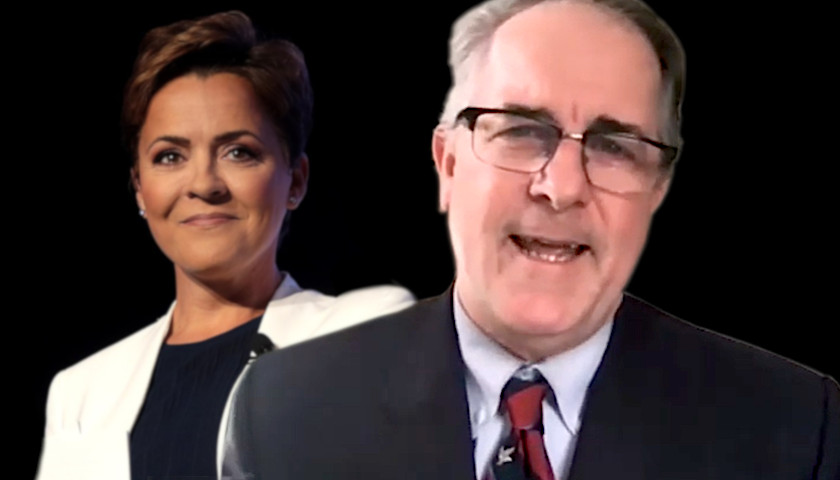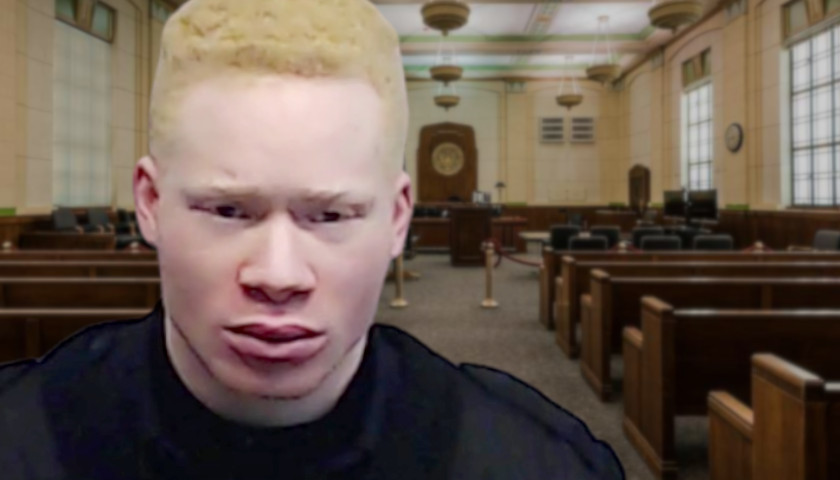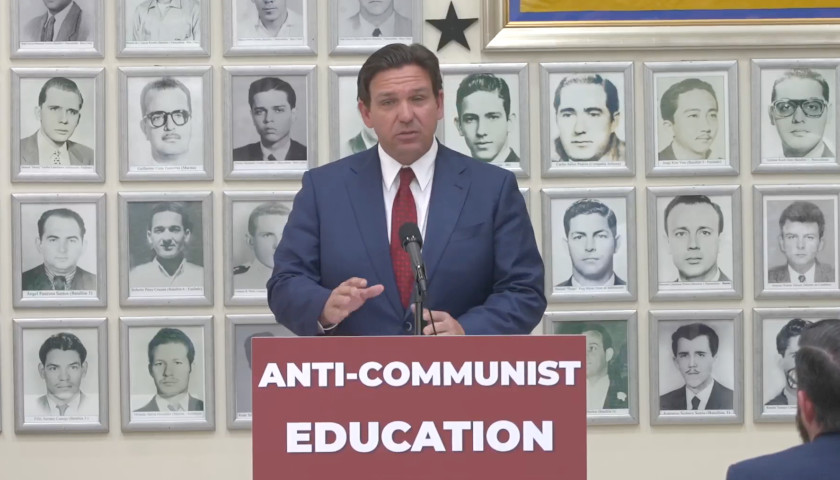As Kari Lake’s lawsuit contesting the results of the gubernatorial election winds its way through the legal system, legal experts are speaking out on the merits of the case. Former Kansas Attorney General Phill Kline, who is currently a professor at Liberty University and director of the election integrity legal organization Amistad Project, warned on Friday that if Lake’s lawsuit is dismissed, allowing Democrat Katie Hobbs to become governor, it will undermine the rule of law.
Kline tweeted, “If Hobbs is successful in dismissing Lake’s suit it only proves 1) election officials can violate procedure and law without accountability 2) partisan private vendors can still be used to conduct core government functions 3) legislators & others have failed to learn from 2020 and 4) many of those who claimed to fix the 2020 problems are wrong!”
As an example of his fourth issue, he said Georgia “claimed to ban private money, but endorsed it.” Bills in the state proposed to restrict outside money would not go so far as to ban donations from ideological groups, corporations, big tech companies, and possible foreign interests. These types of donations were nicknamed “Zuckerbucks” after the huge influx of money from Meta/Facebook CEO Mark Zuckerberg in recent elections. Arizona banned the funds in April 2021, after an outcry over Zuckerbucks in the controversial 2020 election.
Kline went after the private companies involved in elections, which are “enabling evasion of transparency laws.” He was alluding to Runbeck Election Services, which handles much of the ballot processing for Maricopa County, criticizing election operations that use “consolidated count centers and interim ballot handling facilities.”
Kline explained how elections can be manipulated, “Much of election management can still be outsourced in secretive private contracts. Electronic access to pollbooks can still be granted for partisan advantage. Standing to sue is still limited. Ballots and voters are treated differently within a state.”
He went on, “State laws requiring poll workers from both parties are ignored and side-stepped by hiring partisan temp agencies. Ballots are cured secretively and contrary to law. And government election centers have become partisan GOTV efforts.”
In order to address the problem, Kline recommended model legislation that American Voters Alliance drafted. He warned, “If we refuse to learn from the past, we will repeat the past.”
Christina Bobb, an attorney for Donald Trump, agreed that the lawsuit had merit. During an appearance on Steve Bannon’s War Room, she stated, “The evidence in this case is so solid, I don’t know how a court could dismiss it.”
Maricopa County Superior Court Judge Peter Thompson ruled on Friday that Lake may examine a small number of the ballots, which is allowed in statute. On Monday, Thompson will consider the motions to dismiss from the government defendants.
He indicated that even though the defense believes their motions to dismiss will be granted, he is going ahead with the discovery process. “Recognizing that Defendants are confident in their position, the court nonetheless cannot put off all pre-trial discovery on the expectation that the contest will be dismissed,” Thompson stated in his Minute Entry. A trial date has been set for Dec. 21-22.
If the proceedings delay the inauguration of Katie Hobbs as governor, it would not be the first time a legal dispute has interrupted the gubernatorial transfer of power. In 1916, a close election with accusations of voter fraud dragged out the results until well into the next year, when the Arizona Supreme Court finally called the race for the incumbent Democrat, Gov. George Wiley Paul Hunt.
– – –
Rachel Alexander is a reporter at The Arizona Sun Times and The Star News Network. Follow Rachel on Twitter. Email tips to [email protected].
Image “Phill Kline” by Phill Kline and “Kari Lake” by Gage Skidmore CC2.0.








